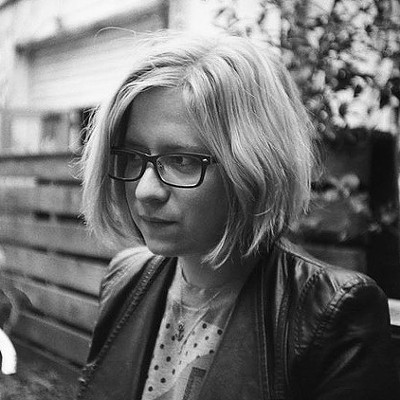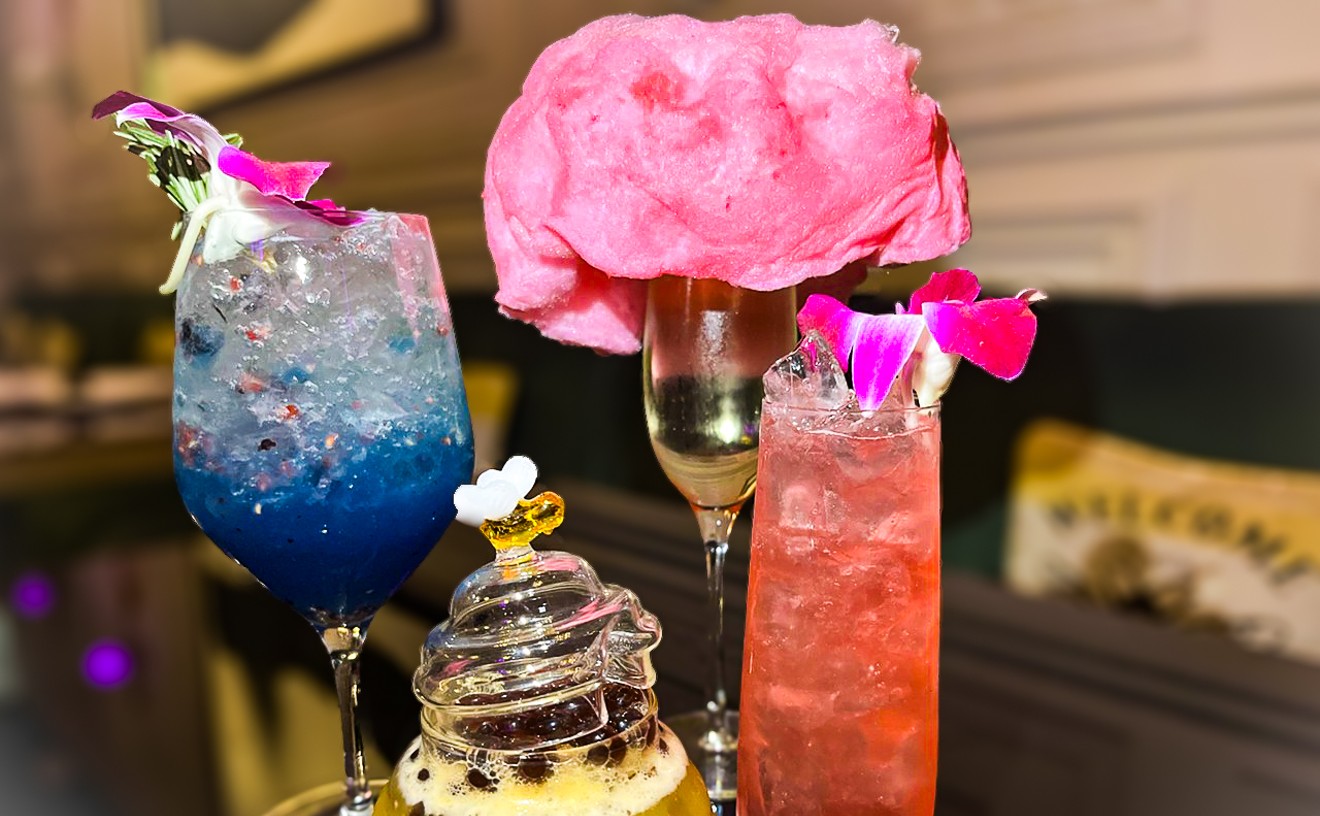His first two restaurants, burger spot Maple & Motor and barbecue joint Slow Bone (which he later sold), are cafeteria-style; diners order at the counter, pour their own drinks and meander along the line as staff fill their plates. In December 2017, when he opened the modern, Love Field-adjacent diner, he opted to go full service and hire servers. It's a move that, four months later, Perkins says he now regrets.
"I spent a year and a half trying to hire a waitstaff. Maybe somebody's good at it; I'm not," Perkins says. So he's doing away with waitstaff altogether.
After dinner service on Friday, the Mockingbird Diner closed for three days and will reopen Tuesday with a shiny new cafeteria-style line. Much like at Maple & Motor, customers will largely serve and seat themselves, and the Mockingbird will edge closer to the "meat and three" — a term used to describe often-Southern restaurants where customers select a meat and three sides from a rotating daily selection — that Perkins originally envisioned.
Going cafeteria-style means customers will be in and out much quicker. Except for a few made-to-order items, diners should be at their seat with a plate in front of them in less than 5 minutes, Perkins says. And yes, it will make to-go orders, which Mockingbird Diner does a lot of, much easier. But Perkins says it's not a big money-saving move. He's just tired of trying to fill server positions."This is the worst time ever to have waiters." — Jack Perkins
tweet this
"I'm fully willing to admit defeat," Perkins says, showing me the most recent string of text messages from waitstaff calling off or asking to switch shifts at the last minute. "Probably 80 percent of waiters have called in sick within the first couple weeks."
It's no secret that staffing has become an issue in Dallas restaurants the last few years. With more new bars and restaurants than ever, owners say it's hard to fill every role, and that when they do, people often ghost — they walk out, sometimes in the middle of a shift, and just grab another readily available restaurant job.
"This is the worst time ever to have waiters. They don't exist," Perkins says. "We have more restaurants than we've ever had, but not enough people. And the work ethic in general is a thing."

Some dishes, like Mockingbird Diner's burger, will still be made to order, but most of the menu will translate well to cafeteria-style, owner Jack Perkins says.
Nick Rallo
Even still, "I probably won't save anything on labor costs," Perkins says. "I'll go from 12 employees making $2.13 an hour to six employees making $10-$12 an hour in back-of-house."
His servers made good money in tips, Perkins says, but when customers tip now (albeit to a much lesser degree), that money will be split evenly among everyone, not just front-of-house.
"We’ll split the tips among everyone," Perkins says. "Back-of-house has always deserved tip share.""I think this is the beginning of something that’s gonna happen a lot in Dallas. I think people are gonna find more ingenious ways to serve the customer with fewer people." — Jack Perkins
tweet this
With the new system, "Everybody makes a living wage," he says. By paying kitchen staff more, Perkins says he'll be able to entice more talent.
Customers may be equally enticed by shorter waits for a table, quicker mealtimes and less money spent on tipping, but they could be equally concerned about the food quality going downhill — something Perkins isn't worried about, as his menu "really lends itself to this," he says. Anyone wondering how good cafeteria-style food can really be should take themselves to Slow Bone, known almost as much for its sides as its barbecue, or Maple & Motor, which has lines out the door almost daily.
"This food translates," he says. "It’s a meat and three. That’s already what it is."
Some dishes, like omelets and Mockingbird's fantastic burger, will still be made to order. But otherwise, this system removes a lot of stress from the diner, Perkins says. He'll also be able to do specials like daily casseroles or sheet pan pizza. "It'll be a comfort," he says. And Mockingbird Diner is big on comfort.
"All these things that are difficult for us are going away," he says. "It'll be fun. I'm very proud of the food we’re putting out, but the whole process just hasn't been fun. Maple & Motor is fun everyday."
Perkins says he's looking forward especially to a simplified brunch, which two weeks ago meant long waits for tables and churlish waffle-seekers getting snippy with the hostess. With no servers and quicker table turnover, the wait times — and the number of customers he can serve in a meal — should improve.
"I think this is the beginning of something that’s gonna happen a lot in Dallas," Perkins says. "I think people are gonna find more ingenious ways to serve the customer with fewer people. I don't think there are many people that really want this job."
The Mockingbird Diner, 3130 W. Mockingbird Lane












